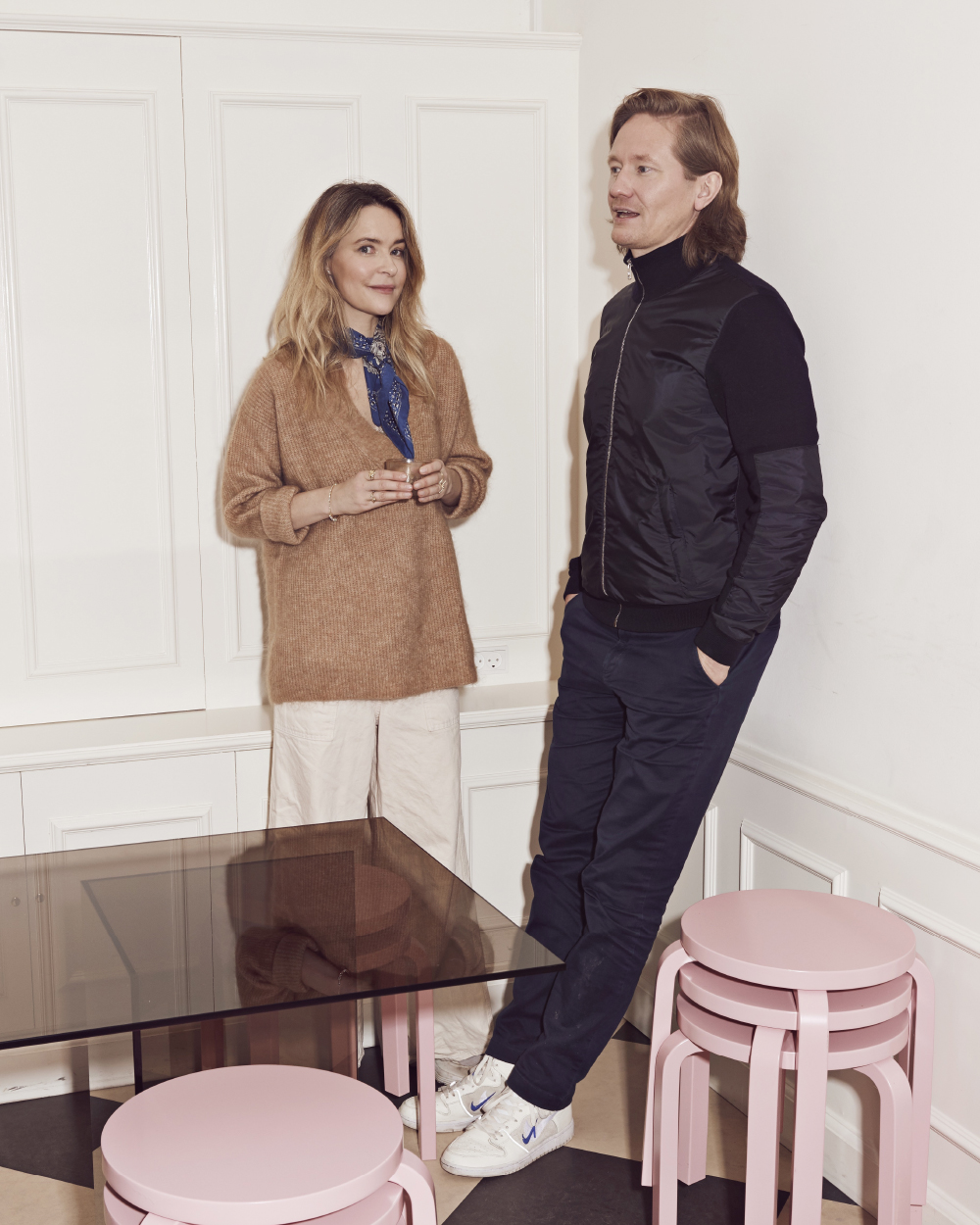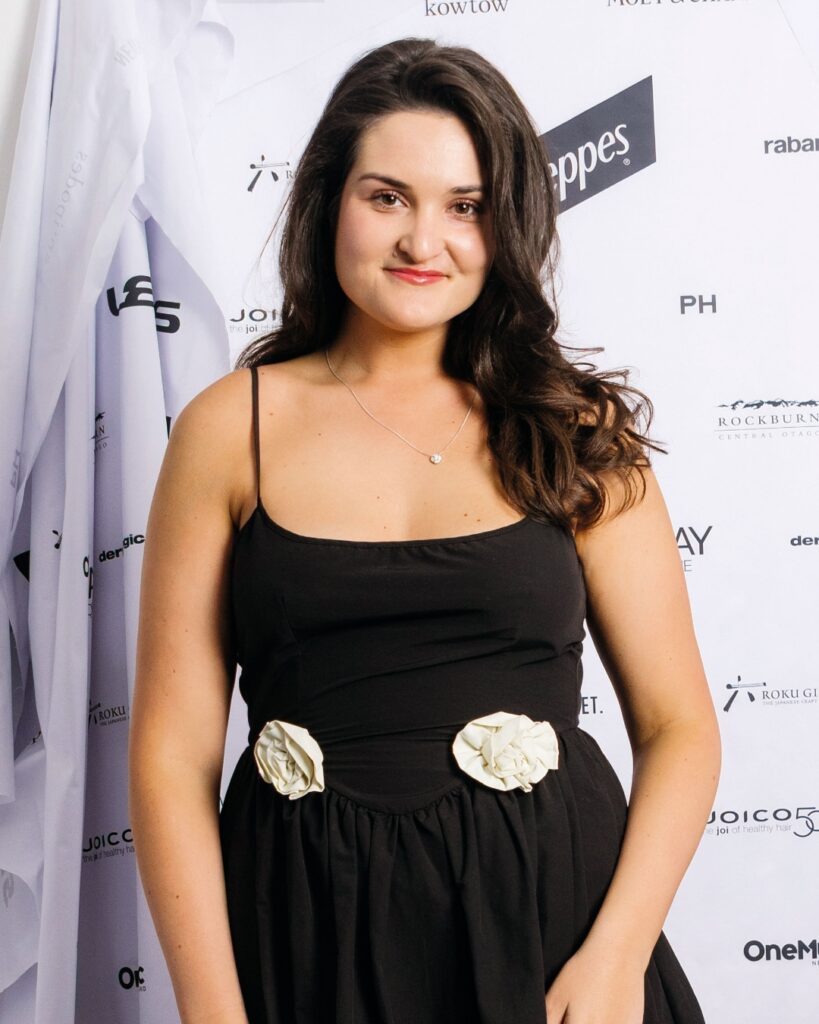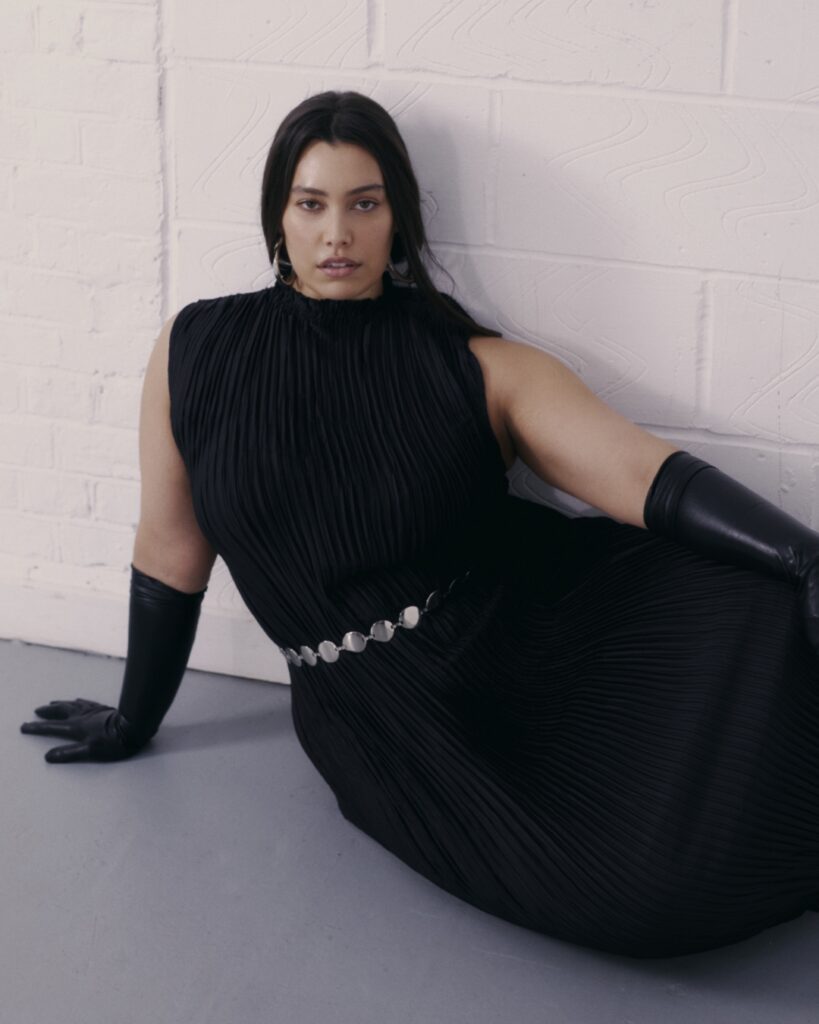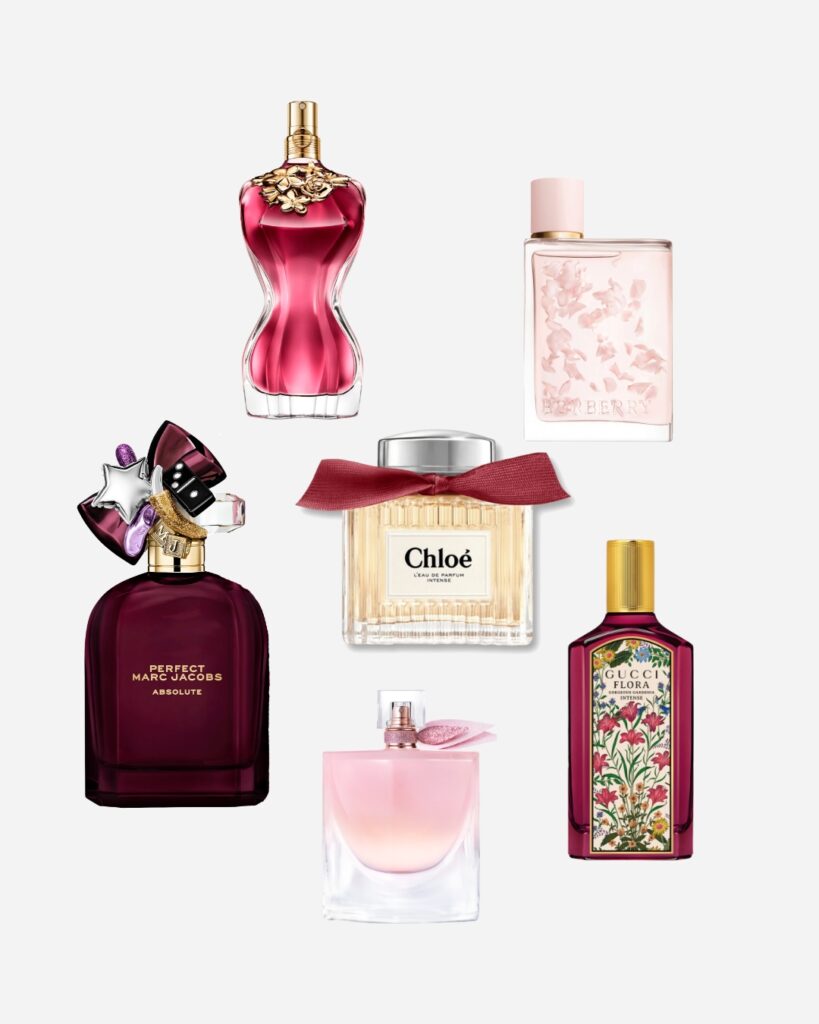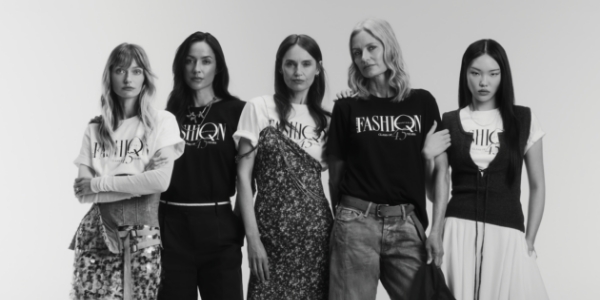FQ talks to Ditte and Nicolaj Reffstrup about how authentic design can lead to fashion world domination.
For years, “French-girl chic” – skinny jeans, tousled hair – has been heralded as the epitome of effortless style, but it’s a fashion cliché as crusty as a day-old baguette. The new It girls are part of the Scandi set – confident colours, lovely layers – who carry their so-cute-I-must-have-it handbags in their bike’s bread basket instead.
Peddling this change towards more personality-filled design are Copenhagen-based Ditte and Nicolaj Reffstrup, who took over their friend’s side hustle, Ganni, more than a decade ago and turned it into the internationally recognised label it is today. While you’d think achieving global fashion domination could mean selling out, the brand has played every move close to home.
In 2018 alone, Ganni dropped 100 wholesale accounts in order to stay true to their brand’s unique standpoint, a move as bold as their latest prints.
How is Ganni driving Scandinavian style?
Ditte: “Scandi style 2.0” for us means a new era of Scandinavian style, full of unexpected details and personality. I go with my gut when designing, rather than listening or looking to trends, and always aim to reflect the laidback attitude of our hometown of Copenhagen and celebrate individual style. I set out wanting to create a brand that represented the way my friends and I dressed, so it always feels natural and ever-evolving. I think if you’re not having fun with fashion, you’re missing the point.
How important is honest design and authenticity?
Nicolaj: We always wanted to create something that was international but reflected our aesthetic. As Danes we are brought up with a real appreciation and understanding of aesthetics and quality design, our heritage has managed to democratise design without compromising on this. With Ganni, keeping an inclusive price point felt like an honest and natural approach. Authenticity covers everything, from the design process, through to our distribution and commitment to becoming sustainable. Generally, we have left a lot of opportunities on the table because they didn’t feel right. Those calls are tough to make, but in the end it’s about not compromising your brand.
How has social media helped?
D: Instagram is something that’s been very organic since the beginning. We didn’t have a master plan, we never even had a social-media manager. We’ve been really lucky with #GanniGirls. It started out as a coincidence. Back in 2015 Kate Bosworth and Helena Christensen met up one evening in New York twinning in the same Ganni coat and coined the term on Instagram – and we liked it! So we picked it up, and it became a thing. Today it has turned into a whole movement that we are so humbled and inspired by.
Who is the ‘Ganni girl’?
D: She’s not just one type of woman. First of all, #GanniGirls is plural, and that’s what our movement is all about. They have something effortless that you can’t quite put your finger on, which I always look to when designing. They’re comfortable in their own skin and don’t try too hard and are relaxed about fashion. You can really feel that when you see her – it’s an easy yet fun approach to fashion and that is very attractive. I still get a buzz every time I see a girl in the street wearing our brand.
How can we dress as effortlessly as a Scandinavian It girl?
D: There’s no secret formula, it honestly is all about the mindset and having confidence to try things out. You see many different looks here, but generally, there is a laidback attitude and effortless approach to fashion. In bigger cities, you might find more high heels, suits or extravagant outfits than in Copenhagen. Here, people are quite focused on the practical aspect of fashion. They want to look good, but they want to be able to bike around town as well. This corresponds pretty well with our design philosophy.
Ganni is a brand known to be selective of the retailers it chooses to work with, too…
N: Because we didn’t know any better, we insisted on behaving like a designer brand with campaigns, shows and super-exclusive distribution. In hindsight, I realise now that this was breaking the rules, but if we could not get into the retailers we wanted to, we would rather wait. Or we simply came up with projects that the customers couldn’t say no to. We really want to bring the Ganni experience to our global community, and Workshop in New Zealand is perfect for that. We really admire what Helen Cherry and the team at Workshop have built up and created.
What does it mean to be a global brand?
N: We’re on a much bigger platform now, but we still both call ourselves “insecure overachievers”, as we are never quite satisfied with where we are and what we do. It’s a bit stressful at times, but also a powerful driver and a guarantee that the brand will continue to move.
Words: Jessica-Belle Greer
This story originally appeared in Fashion Quarterly Issue 3, 2019


